79 F. high in the Twin Cities Friday.
83 F. average high on July 29.
82 F. high on July 29, 2015.
July 30, 1971: A cool spell across Minnesota brings frost to northern Minnesota. Freezing temperatures are reported as far south as Pipestone
Trending Warmer - More Good News Than Bad?Unlike much of the planet Minnesota may actually benefit from a steady warming trend in the 21st century.
We're
already tracking a consistently longer growing season. Many farmers
acknowledge rain is falling harder, washing away rich topsoil and
nutrients. But Minnesota is water-rich, and this may be one of our
biggest assets in the years to come.
Much like 2012 Minnesota will
enjoy a 7-month boating season this year. But a longer warm season
means more allergens, ragweed and pests. Climate Central just crunched
the numbers, showing a 34 day increase in Minnesota's mosquito season
since the 1980s. Lovely!
A mixed blessing.
Cooling degree
data shows we've spent 23 percent more than average cooling our homes so
far this summer; 11 days at or above 90F in the Twin Cities. We'll add a
couple more days above 90F next week, but this weekend looks remarkably
nice, with blue sky, a light southeast breeze and highs within a couple
clicks of 80F.
The more I stare at long-range models the greater
my confidence that August will be stinking-hot too. When in doubt don't
buck the trends.
Old Fashioned Summer Heat.
11 days at or above 90F so far this summer season; ahead of schedule
for late July, according to running 30-year averages for KMSP from NOAA.
Cooling Degree Days.
Average the high and low for any given day - how many degrees above
65F? That's the number of cooling degree days, as tracked by NOAA. Based
on actual observations in the metro we've all spent about 23% more than
average cooling our homes and businesses so far this year. Graphic:
AerisWeather.
Isolated Instability Shower?
4km NAM guidance shows a few pop-up showers by late afternoon and
evening. Most of us probably won't get wet, but there is a small
probability of a 30 minute shower later today. Source: NOAA and
AerisWeather.
Warming Trend.
Soak up one last comfortable day today because another wave of heat and
humidity sweeps north next week. It won't be as hot as late last week,
but I could see 1 or 2 days above 90F by the middle of next week with
dew point pushing into the low 70s. ECMWF data: WeatherBell.
Heat Peaks Next Wednesday.
NOAA model ensembles suggest low to mid 90s next Wednesday before
cooling down a bit by the end of next week. Not as hot, for not as long,
as it was a week and a half ago. Source: Aeris Enterprise.
Extended: Toasty, Not Broiling.
Long range GFS guidance shows a few meager cool fronts scraping the
northern USA 1-2 weeks out, each one bringing minor relief from the
worst of the heat wave, which is forecast to remain anchored just to our
south. That said, I will be surprised if August doesn't wind up warmer
than average - again.
Heat Wave Sparks Anthrax Outbreak In Siberia.
NBC News has the jaw-dropping details (which sound like the prequel to a bad horror flick): "...
A
state of emergency has been imposed throughout the region in western
Siberia due to the incident — the first of its kind since 1941. The
carcass of a reindeer thought to have died from anthrax decades ago
thawed and released the bacteria, sending the disease rippling through a
population of animals already weakened by unusually high temperatures,
according to local officials. Temperatures in the Yamal tundra above the
Arctic Circle have hit highs of 95 degrees this summer, compared to an
average of 77 degrees..."
Photo credit: "
Reindeer gather in Russia's Yamalo-Nenets autonomous district on August 2, 2015." Sergei Karpukhin / REUTERS FILE.
Is a Category 6 Hurricane Possible?
As oceans continue to warm the concept isn't as far-fetched as it might
sound. We may need a bigger scale down the road. Here's an excerpt from
The Weather Channel: "
A recent blog post by Dr. Jeff Masters got the entire weather community thinking: Could there be a Category 6 hurricane? The Saffir-Simpson Hurricane Wind Scale
currently runs from Category 1 through Category 5, and Category 5 is
classified as 157-plus mph. But how far above 157 mph could the winds go
while still being considered Category 5 wind speeds? Last year, Hurricane Patricia reached
maximum sustained winds of 215 mph in the eastern Pacific Ocean. It was
the most intense tropical cyclone ever recorded in the Western
Hemisphere, based on those 1-minute maximum sustained surface winds on
Oct. 23, 2015..."
Forget Tornadoes: "Rain Bombs" Are Coming For Your Town.
Yes, the rain is falling harder. Ask residents of the Brainerd Lakes,
or West Virginia, South Carolina or Texas. Eric Roston explains at
Bloomberg: "...
Scientists understand
the mechanics of small-scale weather events such as rain bombs,
tornadoes, and severe thunderstorms. The past few years have seen modest
improvements in projections of how these storms might behave in a
changing atmosphere, region-by-region. “The research showing rain events
for us being less frequent but more intense, due to climate
change, seems to be our new reality,” Sullins said. What’s known with
much greater confidence by climatologists is that storms should continue to intensify.
There's little question that by stockpiling water vapor, the atmosphere
is building a worldwide arsenal of “rain bombs”—or, if you like, wet
microbursts, macrobursts, or just your typical, Noah-scale deluges..."
Mosquito Season Growing Longer.
Longer growing season - longer boating season - more time for
mosquitoes to breed. 34 days longer since the 1980s? Good grief. Here's
an excerpt from
Climate Central: "...
Climate
Central analyzed how the number of days each year with ideal conditions
for mosquitoes has been changing since 1980. We found that most major
cities in the country (76 percent) have seen an overall increase in days
conducive for mosquitoes in the past 36 years, and many regions have
seen the mosquito season increase by half a month or more. Among the 200
largest metro areas in the U.S., 10 cities have seen their seasons grow
by a month or more over this relatively short period of time. Overall,
125 cities are now seeing their average annual mosquito seasons at least
five days longer than they were in the 1980s..."
Sweating Under The Heat Dome. It could be worse - you could be living in Houston. Here's an excerpt of an Op-Ed at
The New York Times: "...
First,
most conventional wisdom is useless. Yes, you might feel a little
cooler if you wear linen and cotton instead of polyester, along with a
ridiculous “S.P.F.” sun hat. (Really, is there any other kind?) As for
those sunscreens that promise to keep you cool, they do so for the five
seconds you’re spraying them on. When it comes to bugs, torches dipped
in citronella fuel might keep your patio marginally pest free, but at
the expense of warming yourself near, well, a fire. So often,
self-protection in summer comes down to a choice of which feels less
nasty on the skin: sunscreen or bug repellent..."
The World's Biggest, Fastest Firefighting Jet Is About to Take Off. We're going to need a bigger plane. Here's a clip from
eenews.net: "
On
May 5, a big, red-and-white Boeing 747 made a low pass over the airport
here and then dropped about 10,000 gallons of water, shrouding a nearby
field in mist as a crowd including the state's governor, a phalanx of
local politicians and Forest Service representatives looked on. The
plane, a converted former passenger jet, is about to enter service here
as the biggest and fastest airborne firefighting jet in the world. It is
capable of reaching almost any wildfire in the West in about three
hours. Onlookers were excited about the plane's 19,200-gallon capacity
for carrying fire retardant, but less interested in its national reach.
Many of them were more focused on the ugly experiences they've had right
here with fast-spreading wildfires..."
Photo credit: "
The
Waldo Canyon Fire northwest of Colorado Springs, Colo., in June 2012
caused nearly $454 million in damage and was the state's most
destructive fire -- until the Black Forest Fire surpassed it a year
later. Scientists say climate change is helping to fuel forest fires."
Photo by the Department of Agriculture, courtesy of Wikipedia.
Slimy Green Beaches May Be Florida's New Normal.
National Geographic reports; here's a snippet: "...
This is absolutely the worst,” says Evan Miller, an environmental activist and founder of Citizens for Clean Water. Miller lives in the tourist town of Stuart,
110 miles (177 kilometers) north of Miami. “We’ve never seen algae so
thick. You can see it from space. There are places in Stuart that are on
their third and fourth cycle of blooms now.”
As the latest outbreak continues to play out with sporadic bursts of
new algae blooms, dismayed Floridians are wondering if the recurring
appearance of this tourist-repelling, fish-killing scum is their new
normal. It may be..."
Image credit: Popular Science and NASA Landsat 8 Satellite / OLI
Does The Disappearance of Sea Ice Matter? Here's an excerpt from
The New York Times Magazine: "...
In
the vast and chaotic climate systems that govern our atmosphere and
oceans, making sense of how one change — diminished sea ice — affects
places or people thousands of miles away is a task of such extraordinary
complexity that it strains even the most sophisticated supercomputers.
Nevertheless, what it means to be entering an era of new sea-ice
minimums is one of the big scientific questions of the moment. Unlike
the ice on land, sea ice, which derives from the ocean itself, has no
direct impact on sea levels, so its melting poses no threat of coastal
flooding. On the other hand, a recent group of scientific papers
suggests that the steady retreat of sea ice may have a residual effect
on all sorts of other things, like the ice covering Greenland or storms
in New England..."
Photo credit: "
A NASA Operation IceBridge image released in July 2016 that shows melting Arctic sea ice." Credit Dennis Gearhart/NASA.
Weather Service Conducts "Illegal Surveillance" on Staff, Union Says. Details via The Washington Post: "If
it’s on Facebook, can it be secret? Members of the National Weather
Service Employees Organization (NWSEO) thought they had a secret
Facebook page that was available only to them. But not only did National Weather Service
(NWS) management officials know about the page, they accessed it and
made scornful comments about the postings, according to the union. That
amounts to “illegal surveillance” of union activities, according to the labor organization’s complaint filed Wednesday with the Federal Labor Relations Authority..." (Image credit:
Dado Ruvic/Reuters).
Our View: Conservatives' Involvement Will Boost Energy Efforts. What can we all agree on, where is the common ground? Here's an excerpt of an Op-Ed from
The Mankato Press: "...
The
Minnesota Conservative Energy Forum was formed to give conservatives a
voice on energy policy, according to Minnesota Public Radio News. And
the most promising part of its agenda is that the forum doesn’t just
tout traditional dependence on fossil fuels. The group is well-grounded
in the reality that cleaner energy pays off in the long run. Members of
the group say they want to stay away from the tired arguments over
global warming. That’s a strategy that looks more promising for moving
the state forward in its goals to give consumers cheaper, cleaner
choices of energy..."
Click here to see Minnesota Conservative Energy Forum on Facebook; their main web site is
here.
Shared Vehicles Could Make Our Cities Dramatically More Livable. Dave Roberts has the story at
Vox; here's an excerpt: "...
Our
transportation system has not changed much, except to become bigger and
more sprawling, in over 60 years. There are so many moving pieces
today, so many new technologies and possibilities, that it seems
impossible to wrap your head around what may be coming. One way to think
about it is this: Technology is enabling a shift to self-driving
vehicles, a shift to electric vehicles, and a shift to shared vehicles.
Each of those shifts will have its own effects. It can be helpful to try
to disaggregate those effects. That’s what a recent study
from the International Transport Forum (an OECD think tank) attempts to
accomplish. In particular, it tries to focus in on the sharing part..."
Image credit: "
Believe it or not, this was the least bad car-sharing stock art."
(Shutterstock)
Elon Musk Makes a Libertarian Argument for Carbon Tax. Here's an excerpt of an interview at
Reno Gazette-Journal: "...
With
respect to some of the other elements for solar panels and EVs, the big
issue we have is that in reality if you accept the scientific consensus
every oil burning activity is subsidized, dramatically. If you believe
there is a value to the CO2 capacity of the atmosphere and oceans and
that CO2 capacity is not being paid for by the price at the gas pump or
the coal that is being burned for electricity generation or whatever its
use may be then every single fossil fuel burning activity is massively
subsidized. This has become sort of an ideological issue because there
are people who think that global warming is not true..."
Photo credit: "
Elon Musk of Tesla with a new Model S car outside the Tesla customer deliver area." (Photo: Jessica Brandi Lifland/USA Today).
America's Heat Wave No Sweat for Nuclear Power.
What (low or no-carbon) energy alternatives can provide the baseline
power we need, nationwide, until cleaner choices scale up? I'm not
thrilled with nuclear as it exists today, but if you're serious about
decarbonizing the energy grid it may be short-sighted to shut down all
existing nuclear plants in the near term. Here's an excerpt from Forbes: "...Just
like during the polar vortex, when nuclear stepped up to relieve
natural gas and coal when they failed to deliver on the demand, nuclear
also performs wonderfully during extreme weather at the other end of the
thermometer. This kind of constant baseload power during the hottest
part of the day is essential to keep our air conditioning going and for
stabilizing the grid against blackouts. Nuclear plants are the backbone
of the electricity grid, operating all the time even under the most
extreme weather conditions..."
File photo: Joel Boh, Reuters.
 Why Rich Neighbors Are Bad For You
Why Rich Neighbors Are Bad For You. Here's a clip from
The Washington Post: "
The concept of “keeping up with the Joneses” has been around for more than a century.
But in an era of high inequality, the pressure to match the lavish
lifestyles of one's neighbors has become all the more salient. A new paper from
a Federal Reserve economist explores a potentially alarming way these
pressures affects people's financial lives. The paper from Fed economist
Jeffrey Thompson suggests that Americans are borrowing more to keep up
with wealthier members of society — particularly when it comes to buying
and financing homes..." (Image credit:
someecards).
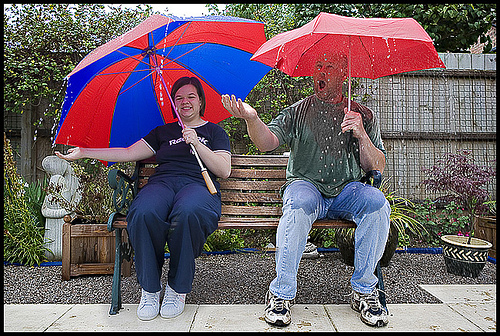 The Public Shaming of England's First Umbrella User.
The Public Shaming of England's First Umbrella User. Using an umbrella shows "weakness of character?" Who knew.
Atlas Obscura has the details: "...
In
the early 1750s, an Englishman by the name of Jonas Hanway, lately
returned from a trip to France, began carrying an umbrella around the
rainy streets of London. People were outraged. Some bystanders hooted
and jeered at Hanway as he passed; others simply stared in shock. Who
was this strange man who seemed not to care that he was committing a
social sin? Hanway was the first man to parade an umbrella unashamed in 18th-century England, a time and place in which umbrellas were strictly taboo. In the minds of many Brits, umbrella usage was symptomatic of a weakness of character, particularly among men..."
TODAY: Partly sunny. Very few complaints about the weather. Winds: SE 3-8. High: near 80
SATURDAY NIGHT: Clear and pleasant. Low: 64
SUNDAY: Plenty of sunshine. Lakes beckon. Winds: SE 8-13. High: 82
MONDAY: Sticky sun, stray T-storm possible. Winds: SE 10-15. Wake-up: 69. High: 88
TUESDAY: Partly sunny, dew point above 70F. Winds: SE 7-12. Wake-up: 72. High: 89
WEDNESDAY: Hot sun, feels like upper 90s to near 100F. Winds: S 10-15. Wake-up: 74. High: 92
THURSDAY: Heavy T-storms, then cooling off a bit. Winds: NW 7-12. Wake-up: 73. High: 88
FRIDAY: Blue sky, welcome drop in humidity. Winds: NW 5-10. Wake-up: 67. High: 86
Climate Stories...
Climate Change's Fingerprints All Over California Wildfires. Perspective from
Climate Central: "...
None
of the fires have been among the worst or largest wildfires the state
has seen in recent years, but they’re part of a dire global
warming-fueled trend toward larger, more frequent and intense wildfires.
The number of blazes on public lands across the West has increased 500
percent since the late 1970s, said LeRoy Westerling,
a professor studying climate and wildfire at the University of
California-Merced. The outlook this summer is sobering: Wildland fire
potential for most of coastal California and the Sierra Nevada Mountains
is above normal and is expected to remain that way through October, according to the National Interagency Fire Center..."
Photo credit: "
The Sand Fire burning in California's Santa Clarita Valley in July." Credit: Kevin Gill/flickr.
Cooler La Nina Temperatures Will Not Impact Climate Change.
ENSO (El Nino and La Nina) temporarily magnify or mask the full effects
of the warming underway, but don't look for the upcoming La Nina to
make much of a dent, according to Voice of America: "The World Meteorological Organization
says a La Nina event may develop later this year, but this weather
phenomenon, which ushers in cooler temperatures will have no
long-lasting impact on climate change. The El Nino/La Nina weather
phenomenon has worldwide regional impacts on rainfall and temperature on
a seasonal scale. El Nino causes a warming of the tropical eastern and
central sea surface temperatures in the Pacific Ocean and is
characterized by warmer temperatures..."
Graphic credit: "
Oceanographic satellite released by NASA April 21, 2008, depicts a La Nina blanketing the Pacific Ocean near the equator." Reuters.
James Cameron Wants To Make Climate Change an Election Year Issue. Here's a clip from
TIME: "...
Cameron’s short documentary—entitled
Not Reality TV—aimed to do just that. The five-and-a-half minute film
presents visuals of climate-related devastation along with voices
calling attention to the issue from the likes of Pope Francis, George
H.W. Bush and scientists. And, like much of the DNC, the video is filled
with celebrities—from narration by Sigourney Weaver to an appearance by
Jack Black..."
Cameron's video is
here.
What The U.S. Will Look Like When Your Kids Get Old.
Gizmodo explains: "
When climate change is in the news, it’s usually because of a scary new temperature record or a mass coral die-off, or because an enormous chunk of Greenland disappeared and nobody noticed.
But at the end of the day, the thing that most of us really care about
is how we’ll be affected. Now, NOAA is making it easier than ever to
find out, with a new Climate Explorer app
that shows just how screwed (or spared) your little sliver of the
country will be. The first version of Climate Explorer launched in 2014,
as part of a package of climate tools for planners interested in identifying vulnerable coastlines and flooding risks..."
Visitors to a Shrinking Alaskan Glacier Get a Lesson on Climate Change.
A natural cycle? The photo above shows is a before/after photo from
1884 and 2004 at the Mendenhall Glacier in Alaska. Here's a clip from
NPR: "
The Mendenhall Glacier
is visible from the visitor center parking lot. But it's still pretty
far and if you traveled all the way to Juneau, Alaska, you probably want
to get up close to the blue tinted ice. Touching the face of the
glacier can be tricky. You're separated by cold, silty water, and a hike
over the ridge could take hours. Visitor center staff know that. And
inside, they use it to prove a point. John Neary, director of the
glacier's visitor center, wants the more than 500,000 people who visit
the Mendenhall Glacier each year to know that it's rapidly retreating
due to climate change..."
People Who Predict Floods Can't Assume the Climate Isn't Changing Anymore. Here's an excerpt from
ThinkProgress: "...
Climate
change has forced scientists, policymakers, flood control managers,
urban planners, and especially anyone living in flood-prone areas to
rethink how they assess the coming hazards of floods. In recent weeks, a
series of terrible flood events in the United States has added a new sense of urgency to their discussions. Even abroad — recently in China, as well as in France, Germany, Nepal, South Africa and India,
for example — floods have taken a significant toll on human life and
property, exacerbating global concerns. Increasingly, experts in flood
management and climate scientists have come to recognize that global
warming — along with geography; topography; land use and development;
infrastructure; and cultural beliefs — significantly contributes to the
severity and frequency of floods..."
File photo: USGS.
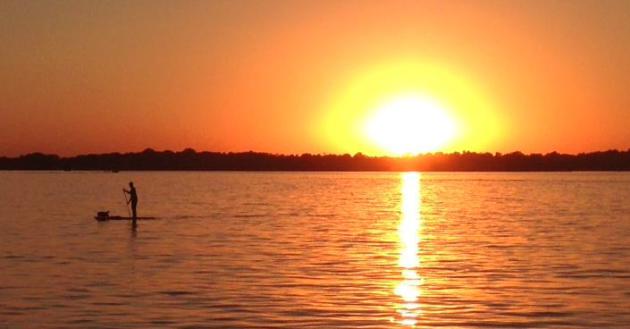
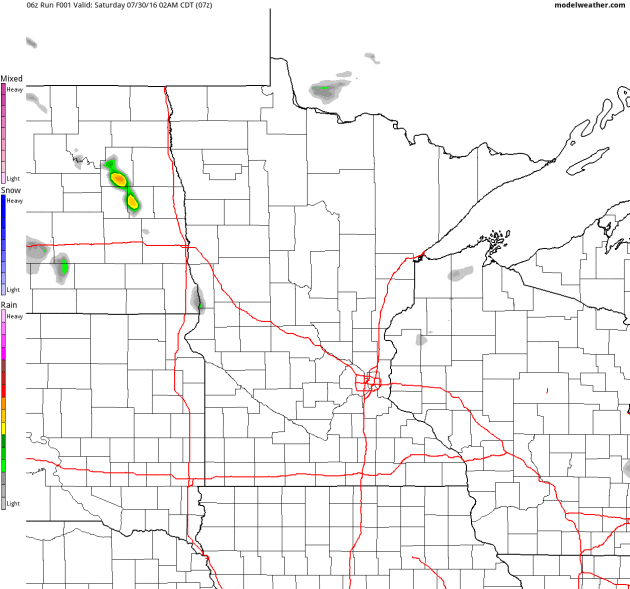
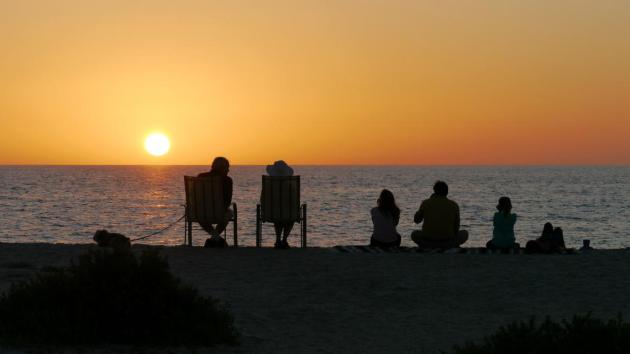
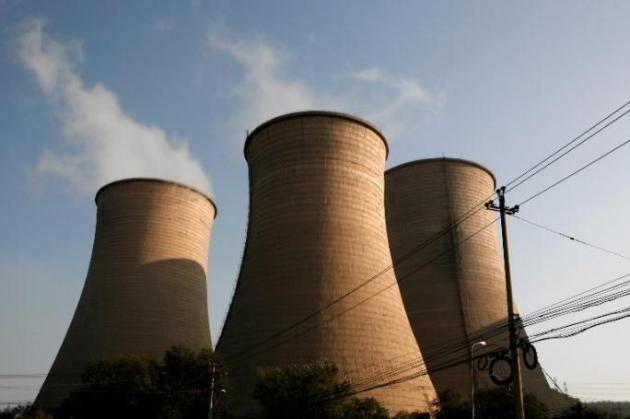


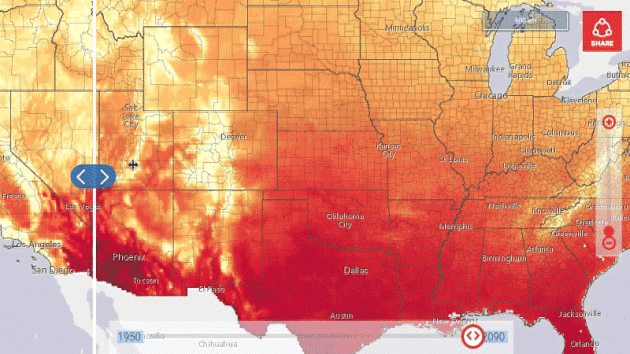
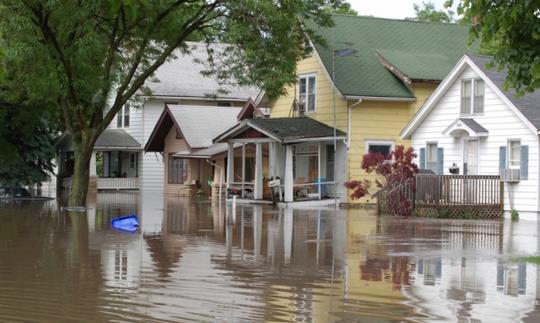
No comments:
Post a Comment